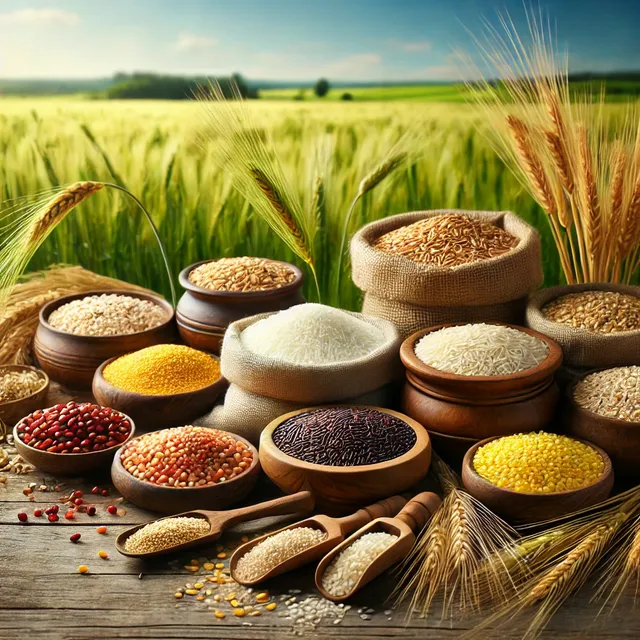The Importance of Organic Grains: A Path to Healthier Living

In today's fast-paced world, where convenience often takes precedence over quality, it is crucial to pause and consider the origins and quality of the food we consume. Among the myriad of dietary choices available, organic grains stand out as a beacon of health and sustainability. This article delves into the significance of incorporating organic grains into our diets and the manifold benefits they bring to our health and the environment.
What Are Organic Grains?
Organic grains are cultivated using methods that emphasize natural processes and sustainability. Unlike conventional farming, organic farming avoids the use of synthetic pesticides, herbicides, and fertilizers. Instead, it relies on natural fertilizers like compost and manure, crop rotation, and other environmentally friendly practices. Common organic grains include wheat, rice, oats, barley, quinoa, and millet.
Health Benefits of Organic Grains
Nutrient-Rich: Organic grains are often richer in essential nutrients compared to their conventionally grown counterparts. They contain higher levels of vitamins, minerals, and antioxidants, which are crucial for maintaining optimal health.
Fewer Toxins: Because organic grains are grown without synthetic chemicals, they have lower levels of pesticide residues. This reduces the risk of exposure to harmful toxins, which can have long-term negative effects on health.
Better Digestibility: Many people find that organic grains are easier to digest. The absence of synthetic additives and preservatives means that the grains are closer to their natural state, which can be gentler on the digestive system.
Reduced Risk of Chronic Diseases: Diets rich in whole grains have been linked to a lower risk of chronic diseases such as heart disease, diabetes, and certain cancers. Organic grains, being free from harmful chemicals, may enhance these protective effects.
Environmental Benefits
Sustainable Farming Practices: Organic farming promotes biodiversity and ecological balance. By avoiding synthetic chemicals, organic farmers help maintain healthy soil, water, and ecosystems.
Reduced Pollution: Conventional farming practices often lead to the runoff of synthetic fertilizers and pesticides into water bodies, causing pollution and harm to aquatic life. Organic farming minimizes this risk, promoting cleaner waterways.
Climate Change Mitigation: Organic farming practices help sequester carbon in the soil, reducing greenhouse gas emissions. Additionally, organic farms generally use less energy and produce fewer emissions than conventional farms.
Supporting Local Economies
Choosing organic grains often means supporting small-scale farmers who are committed to sustainable practices. By purchasing organic products, consumers can help foster local economies and promote ethical farming practices.
Making the Switch to Organic Grains
Transitioning to organic grains can be a gradual process. Start by incorporating a few organic options into your diet, such as organic oats for breakfast or organic quinoa in your salads. Look for certified organic labels when shopping, and consider buying from local farmers' markets or health food stores.
Conclusion
Organic grains are more than just a dietary choice; they represent a commitment to personal health and environmental sustainability. By choosing organic, we can enjoy nutrient-rich, toxin-free grains while supporting farming practices that are kinder to the planet. Embrace the benefits of organic grains and take a step towards a healthier, more sustainable lifestyle.
Feel free to share your thoughts and experiences with organic grains in the comments below. Have you noticed a difference in your health since making the switch? Let's start a conversation and inspire others to make mindful food choices!
Disclaimer: This article is for informational purposes only and does not constitute medical advice. Please consult a healthcare professional before making any significant changes to your diet.
Congratulations, your post has been upvoted by @upex with a 0.13% upvote. We invite you to continue producing quality content and join our Discord community here. Visit https://botsteem.com to utilize usefull and productive automations #bottosteem #upex
Downvoting a post can decrease pending rewards and make it less visible. Common reasons:
Submit